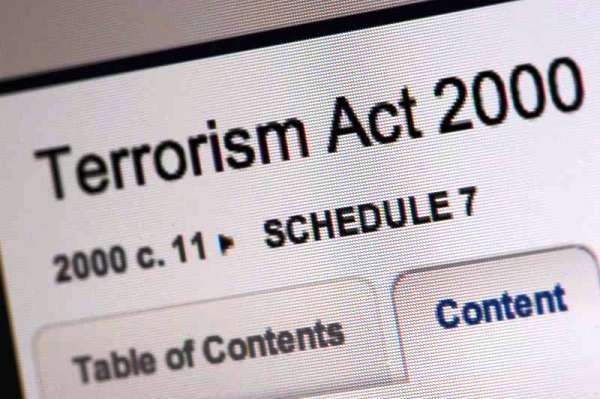Index relies entirely on the support of donors and readers to do its work.
Help us keep amplifying censored voices today.
Index on Censorship senior writer Padraig Reidy joined Glenmore Trenear-Harvey, the editor-in-chief of the World Intelligence Review and Isabella Sankey, policy director for Liberty to discuss the nine-hour detention of David Miranda, and reports by Guardian editor Alan Rusbridger of intimidation by UK security forces in the wake of its reporting of leaks by NSA whistleblower Edward Snowden.
 I don’t have a problem with sending journalists to gaol.
I don’t have a problem with sending journalists to gaol.
Sometimes we break the law, and sometimes we do it in ways that are not defensible as being in the public interest, or for reasons that are not related to our journalism. I also think it’s okay for the police to detain and question journalists, as they may anyone else. I work on the assumption that we should all, as citizens, respect the rule of law and act within legal constraints – a big part of any journalist’s training covers legal issues around contempt, defamation, confidentiality and copyright.
I don’t even want special protection under the law as a “journalist” because then someone has to decide who counts as one, and as we’ve seen in the UK with the debate over the Leveson inquiry, that quickly ends up with some sort of state-approved licensing mechanism which none of us would find acceptable.
If there is to be protection then it should cover “acts of journalism”, no matter who commits them, and it should by and large rely on case law established by brave people taking risks to make information public and then defending their actions, also in public. As a working journalist I’m prepared to make promises to sources that could result in my spending time in prison, and I respect those of my colleagues who have put themselves on the line to establish the boundaries of acceptable journalistic practice.
Unfortunately, while we in the press have by and large played fair, it’s now clear that the state hasn’t. The revelations about the way the NSA and GCHQ operate have confirmed the view that many agents of the state either consider themselves outside the law or feel confident that the laws have been written to allow them to act in the ways they wish. They make it impossible to respect the law as it stands, and impossible to argue that we as citizens must simply obey laws that have been written to take away our liberty, our freedom to speak without being monitored, and our ability to act to change the world for the better whether by speaking truth to power, telling the world what is really going on, or campaigning in the streets and online to reform laws and practice.
This week’s detention of David Miranda under the UK’s Terrorism Act is a defining point. Miranda may have been carrying digital copies of secret documents made available to Laura Poitras and his partner Glenn Greenwald, but that does not make him a credible suspect in an investigation into terrorism, except to a paranoid state whose laws have been written to allow the security services unfettered power to detain and investigate anything they consider threatening.
But of course, that is what we have. Here in the UK the word “terrorism” has been stripped of all meaning so that it can routinely be used to cover any activity that the state does not fully approve of, or anything that might disrupt the free operation of the security apparatus ostensibly built to protect us from that same “terror”.
As a result many activities, from campaigning to marching to writing to helping uncover a vast, illegal conspiracy to surveil and monitor the entire internet, is covered by provisions of anti-terror legislation passed by frightened legislators willing to be persuaded that such draconian powers would only be used against clearly wicked people planning clearly horrible acts of mass murder. They were unable or unwilling to foresee that it would be used to hound journalists or those working for newsgathering organisation or that it would be used to justify oppression of anyone who stands out against any government policy. This is the security state, and while we may have watched it being assembled brick by brick in the last decade, the final brick snapped into place this week.
It is time for us to call on Obama, Cameron, Clegg and the other architects of oppression to “tear down this wall“. And yes, the irony of finding that I need to quote Ronald Reagan has not escaped me.
Bill Thompson is a writer and broadcaster. This post was originally published at The Bill Blog
The Financial Times, the Guardian, and the Independent this week shifted their position towards a compromise on press regulation. Index criticises the change of stance, which risks threatening press freedom
 To improve the culture, practice and ethics of the press, we must protect and promote the best of journalism. Alan Rusbridger makes the case for a new settlement
To improve the culture, practice and ethics of the press, we must protect and promote the best of journalism. Alan Rusbridger makes the case for a new settlement